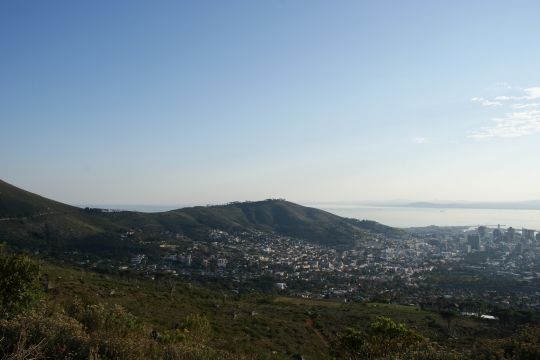Policymakers need to take a cross-disciplinary approach to tackling South Africa’s twin challenges of reducing greenhouse gas emissions, at the same time as making pro-poor development choices for the country.
This is the call by the Environmental Policy Research Unit’s Prof Anthony Black, at the University of Cape Town. He was speaking as a ‘development provocateur’ at a Development and Mitigation Forum hosted by the Energy Research Centre (ERC) earlier this year.
‘Investing in efficient public transport and densifying the city are examples of a ‘win-win’ policy,’ says Black.
‘It would help South Africa meet our international carbon emissions reduction targets because it would reduce the per-person emissions of road users, through cutting down on commuting distances and through easing traffic congestion. But it will also address poverty by boosting access to jobs and reduce the costly burden of commuting for workers.’
The apartheid-era design of our cities means that working class communities live far from hubs of employment. Finding work or commuting to work is both difficult and costly. This effectively constitutes a tax on employment and the poor.
However if government invested its emissions reduction budget on subsidising the rollout of electrical vehicles, and building the necessary infrastructure to support such a fleet, it would in effect be a subsidy for the wealthy since vehicles of this nature are bought mostly by high income users. The cars would most likely be imported, meaning there would be limited job creation. In a developing country context this constitutes a much less appropriate policy intervention.
Getting to win-win solutions demands that policymakers, economists and development specialists need to integrate climate change ‘mitigation’ with the development agenda more closely. Green growth and emissions reduction need to be primary considerations rather than an afterthought.
Prof Black published an opinion piece in the Business Day in June, which opened up a dialogue with the Department of Trade and Industry.
